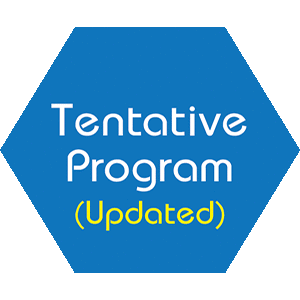Ananya Das
All India Institute Of Medical Sciences, India
Title: Hearing screening with Transient Evoked Otoacoustic Emission (TEOAE) and Brainstem Evoked Response Audiometry (BERA) in newborn-Experience from Eastern India
Biography
Biography: Ananya Das
Abstract
Background: Hearing impairment is one of the most common abnormalities in newborn. It is often detected late and associated with delayed language, learning, and speech development. New born hearing screening is essential to detect impairment early for improved outcome.
Aims and objective:
Comparison of prevalence of hearing impairment in high risk new-born and normal new-born.
Evaluation of different risk factors for hearing impairment.
Materials and methods:
Study design: Prospective longitudinal case control study
Study place: Medical College, Kolkata
Study period: Nine months
Sample size: Total 764 babies (545-normal newborn/219-high risk newborn) were screened. High risk group was allocation was performed using the Newborn Hearing Screening Programme (NHSP) Risk Factor Screening guidelines.
Methodology: 1st TEOAE was done on all the babies at the time of discharge. The result of the test was interpreted as “Pass” or “Refer.” Babies having ‘Refer’ response were sent for 2nd TEOAE screening 4 weeks later. Babies having a ‘Refer’ response in the second stage were sent for the third stage BERA screening immediately. Absence of wave V in BERA was taken as confirmation of hearing impairment.
Results:
Prevalence of hearing impairment in the normal newborn [0.56%] was significantly less than the high risk group[1.86%] with p value-0.049. Significant risk factors identified were - meningitis (p value 0.001), congenital infection (p value<0.001), mechanical ventilation >5 days(p value<0.001), serum bilirubin>20 mg/dl (p value<0.001).
Conclusion:
Hearing screening should be done in all new-born babies. UNHS (universal newborn hearing screening) protocol using OAE and BERA can be implemented in Indian setting.

